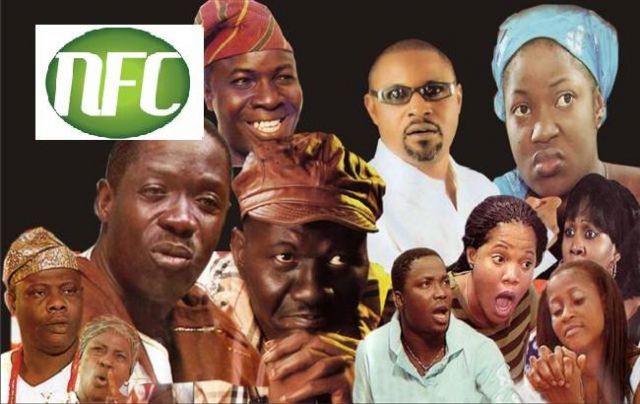
In a move that is evocative of the role of Nigerian labour congress and other trade unions in the country, some key players in the Nigerian film industry have collaborated with the Radio and Television Workers Union in a nationwide agitation for the unionisation of Nollywood.
At the vanguard of the call is star actress and industry veteran, Clarion Chukwurah, who is convinced that the move is necessary to drag the industry out of the state of mediocrity and irrelevance it has slipped into. Chukwurah is joined in the crusade by fellow players in the industry like RATTAWU president, Mr. Yemisi Bamgbose; the regional secretary of Pan African Federation of Film makers, Madu Chikwendu Zainab Ahmed; a notable film producer from the North, Okechukwu Ogunjiofor; Mr Henry Odugala, general secretary of Radio, television and arts workers union, Tunji Sotimirin and a host of other practitioners and stakeholders.
What the stakeholders are basically calling for is the separation of the entire industry into two broad and active unions; one for movie makers and one for movie workers. They believe these unions will achieve more than the coalition of guilds currently operating in Nollywood.
At a press briefing held to address the issue, Chukwurah called to mind the glorious days of television drama where professionals trained in specific technical and artistic areas handled the business of movie making and ensured that quality was upheld at every stage of the process. She observed that the present home video industry is a child of circumstance funded by non professionals and lacking in structure. This according to her is due to the fact that the past stakeholders only concentrated on working in the days of celluloid films, neglecting to lay a firm structure that the coming practitioners could operate with.
“The economic downturn of Nigeria put film stock completely out of the reach of film makers’ financial ability and sent the Nigerian film industry to sleep and the resulting vacuum has given birth to a crop of non professionals who have defied every attempt at structurisation in the twenty years of the existence of the movie industry,” she noted.
The stakeholders believe that the unionisation of the industry will open the door for foreign film industries to walk through and interact with Nigerian film workers and owners based on merit and choice and not on reference. The move will also enable Nigerian movie workers demand for their right at any time through dialogue or necessary pressure from the Nigerian movie owners without any government’s interference because they are two market forces dependent on each other for production.
On the formation of the Motion Picture Council of Nigeria, Chikwendu noted that the idea was not to make the council another government parastatal since Nigeria is already overburdened with too many parastatals draining the national treasury. He added that it was time for the movie stars to realise that the only way to achieve relevance is not to go and fight on the streets and create scandals everywhere, noting that the fact that people are already building movie structures and coming out with globally acclaimed movies like figurine and others is an indication that Nollywood as it was known before is already dying. ”The days of unstructured, directionless and motionless industry are over because people are already moving on,” Chikwendu said.
As part of the arrangement for unionisation, there is to be a seven day summit of 100 stakeholders of the Nigerian film industry in Lagos where the unions will be formally announced.



















